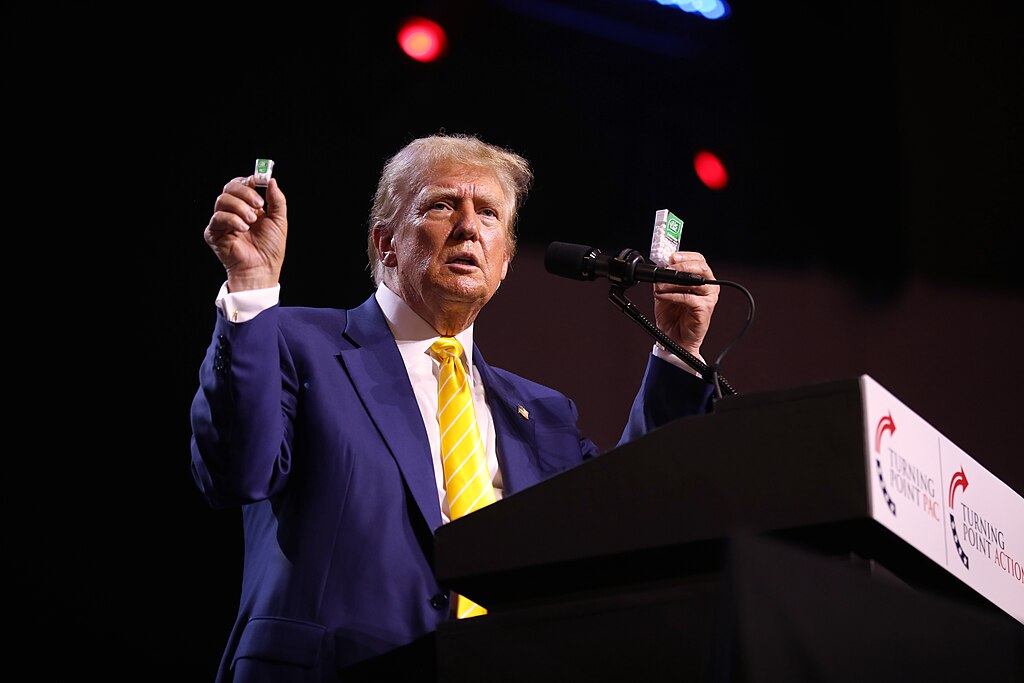As President-elect Donald Trump prepares to assume office in January 2025, his anticipated foreign policy approach has elicited varied reactions from global leaders. Trump's "America First" doctrine, characterized by assertive trade policies and a focus on national interests, is poised to reshape international relations.
European Allies Express Concern
European Union (EU) officials have voiced apprehension regarding Trump's potential return to the White House. The EU and NATO are reportedly "serrant les rangs" (closing ranks) in anticipation of Trump's presidency, reflecting concerns over his previous criticisms of NATO and the EU.
China's Strategic Maneuvering
In response to Trump's expected trade policies, Chinese President Xi Jinping has intensified diplomatic efforts at global summits. Xi's initiatives aim to counterbalance anticipated U.S. tariffs and leverage potential rifts between the U.S. and its allies. China's outreach to the Global South underscores its strategy to strengthen influence amid shifting U.S. policies.
Russia's Calculated Position
Russian President Vladimir Putin's absence from the recent G20 summit in Rio de Janeiro, due to an International Criminal Court warrant, did not diminish Russia's presence. The summit highlighted the "décomposition de l'ordre international" (decomposition of the international order) and the weakening of Western influence, with Trump's potential return contributing to the uncertainty.
Middle Eastern Dynamics
In the Middle East, leaders are preparing for possible shifts in U.S. policy under Trump. His previous administration's decisions, such as relocating the U.S. embassy to Jerusalem, have left lasting impacts. Regional actors are now assessing how a renewed Trump presidency might influence ongoing conflicts and diplomatic relations.
Public and Expert Reactions
Public opinion is divided regarding Trump's foreign policy stance. Supporters argue that his assertive approach will bolster national security and economic interests. Critics contend that it may strain alliances and destabilize international norms.
On social media, reactions are polarized. Twitter user @PatriotGuardians expressed support, stating, "Finally, a leader who puts America first. #MAGA." Conversely, @GlobalDiplomat tweeted, "Diplomacy requires balance and cooperation, not isolationism. #GlobalUnity."
Outlook
As Trump's inauguration approaches, the international community remains attentive to his foreign policy appointments and initial diplomatic engagements. The evolving dynamics will significantly influence global alliances, trade relations, and geopolitical stability in the coming years.



 Failure of US-Iran talks was all-too predictable – but Trump could still have stuck with diplomacy over strikes
Failure of US-Iran talks was all-too predictable – but Trump could still have stuck with diplomacy over strikes  Suspected Drone Strike Hits RAF Akrotiri Base in Cyprus, Causing Limited Damage
Suspected Drone Strike Hits RAF Akrotiri Base in Cyprus, Causing Limited Damage  Trump to Address Nation as U.S. Launches Strikes in Iran, Axios Reports
Trump to Address Nation as U.S. Launches Strikes in Iran, Axios Reports  Trump Warns Iran as Gulf Conflict Disrupts Oil Markets and Global Trade
Trump Warns Iran as Gulf Conflict Disrupts Oil Markets and Global Trade  Australia Rules Out Military Involvement in Iran Conflict as Middle East Tensions Escalate
Australia Rules Out Military Involvement in Iran Conflict as Middle East Tensions Escalate  AI is already creeping into election campaigns. NZ’s rules aren’t ready
AI is already creeping into election campaigns. NZ’s rules aren’t ready  Trump Says U.S. Combat Operations in Iran Will Continue Until Objectives Are Met
Trump Says U.S. Combat Operations in Iran Will Continue Until Objectives Are Met  Marco Rubio to Brief Congress After U.S.-Israeli Strikes on Iran
Marco Rubio to Brief Congress After U.S.-Israeli Strikes on Iran  HHS Adds New Members to Vaccine Advisory Panel Amid Legal and Market Uncertainty
HHS Adds New Members to Vaccine Advisory Panel Amid Legal and Market Uncertainty  Israel Declares State of Emergency as Iran Launches Missile Attacks
Israel Declares State of Emergency as Iran Launches Missile Attacks  Why did Iran bomb Dubai? A Middle East expert explains the regional alliances at play
Why did Iran bomb Dubai? A Middle East expert explains the regional alliances at play  Israel Strikes Hezbollah Targets in Lebanon After Missile and Drone Attacks
Israel Strikes Hezbollah Targets in Lebanon After Missile and Drone Attacks  U.S.-Israel Strike on Iran Escalates Middle East Conflict, Trump Claims Khamenei Killed
U.S.-Israel Strike on Iran Escalates Middle East Conflict, Trump Claims Khamenei Killed  Trump Launches Operation Epic Fury: U.S. Strikes on Iran Mark High-Risk Shift in Middle East
Trump Launches Operation Epic Fury: U.S. Strikes on Iran Mark High-Risk Shift in Middle East  Netanyahu Suggests Iran’s Supreme Leader Khamenei May Have Been Killed in Israeli-U.S. Strikes
Netanyahu Suggests Iran’s Supreme Leader Khamenei May Have Been Killed in Israeli-U.S. Strikes  Israel Launches Fresh Strikes on Iran After Death of Supreme Leader Ayatollah Khamenei
Israel Launches Fresh Strikes on Iran After Death of Supreme Leader Ayatollah Khamenei  Does international law still matter? The strike on the girls’ school in Iran shows why we need it
Does international law still matter? The strike on the girls’ school in Iran shows why we need it 
































